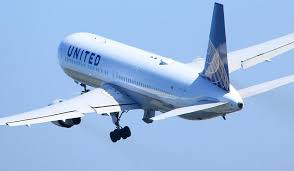Thoughts on the United Airlines Incident
by Brian Derfer, CTO, Agile Six Applications, Inc.
This is not about rights
Framing the issue as a matter of rights completely misses the point, in my opinion. It seems pretty clear that United has the legal right to remove passengers to accommodate their employees. On the flip-side, travelers have the right to choose other airlines in the future, and stock-holders have the right to buy or sell United Airlines stock. To me the issue is whether removing Dr. Dao and the other passengers was a decision that was a) ethical, and b) served the best interests of the passengers and United Airlines. Is it ever ethical to drag someone kicking and screaming from an airplane, and (apparently) subject them to injury, so that another flight can take off on time? Is it ethical for United to ask customers to pay market prices for tickets, then put an arbitrary cap on what they are willing to compensate customers when the company needs to buy the seat back? On the pragmatic side, is there any way in which the way this situation was handled represents anything but a lose-lose proposition for everyone involved?
Apply Systems Thinking
United Airlines and its operations is a large complex system involving multiple resources and services that need to be coordinated. The system includes customers and potential customers who pay United in order to take advantage of these resources and services to get from one place to another. The role of the customer in the system is critical, since the customer, and their need to get somewhere, is really the underlying reason for the existence of the company in the first place. From this perspective, it is clear that customer trust is a critical component of the United system, underscored by their tag-line “Fly the friendly skies.”
In large, complex systems, there is a tendency towards local optimization — i.e., each component tends to make decisions that lead to an optimal outcome for the component, but which may not be an optimal solution for the system as a whole. At some level, I think this is what happened here. Most of the discussion on the decisions that United made in removing Dr. Dao seem to focus on a proximate need, which was to get four specific United Airlines crew members onto a specific flight for a specific compensation limit of $800 per passenger. In other words, there was a component-level need to get United crew to a destination, and perhaps to avoid delaying or cancelling a different flight, and perhaps avoid spending too much in the process. But at a system level, this objective should be weighed against other system-level objectives such as the need to reinforce customer trust and loyalty, create the conditions for safe and pleasant flights, get passengers to destinations with efficiency, build the United brand, maintain profitability, etc.
Applying systems thinking to this situation leads to the following question:
When does the local goal of getting the United Crew on the flight begin to undermine other system-level goals, such as reinforcing customer trust, building the United brand, and creating the conditions for profitability?
I don’t know exactly when that line was crossed here, but I know it was crossed, and by a long way.
It doesn’t seem hard to come up with some alternative decisions that United could have made that might have better served everyone involved (i.e, the system as a whole):
- Find other crew members to serve the flight out of Louisville.
- Fly the United crew members to Louisville on another airline.
- Delay the flight from Louisville until crew members can be found to staff the flight.
- Let the market decide what is fair compensation for taking a later flight. I’m going to guess that at some price, United would have suddenly found a lot of volunteers, and I imagine whatever cost that was would seem very cheap relative to the hit the United brand has taken in the last 24 hours.
Stepping back a bit more, perhaps there are some additional questions that could be asked of the United Airlines system as a whole:
- United and most other airlines intentionally over-book flights in order to maximize profits and efficiency. Perhaps this practice should be reviewed and updated to include the cost of paying customers whatever the market will bear in terms of their willingness to take a later flight. Certainly the price customers pay for tickets is based on market conditions. Shouldn’t a similar market apply to when the airline wants to effectively purchase back that ticket? It seems like a system that is based on market conditions will be considerably more stable and mutually beneficial, not to mention more ethical, than one that occasionally requires customers to be involuntarily removed from flights to meet the needs of the airline.
- From the way this issue has been framed in other articles, it appears that the four United crew members had no choice but to take that specific flight, otherwise another flight taking off from Louisville would have been canceled. This begs the question: why were resources scheduled in such a way that left no room for error, especially in a context in which flights are intentionally over-booked? Perhaps there an opportunity to improve how crews are scheduled, and/or how they are transported between destinations, that limits the impact on paying customers.
- Relatedly, since all airlines apparently routinely over-book flights, is there an opportunity for airlines to exchange seats for their crew members, to create a more fault-tolerant system for everyone? For example, if United cannot find any customer volunteers to take a later flight, perhaps they could have an agreement with other airlines to take the crew to the destination — sort of a “safety valve” in order to avoid this kind of situation.
Empathy and Human Centered Design
Whether you are talking about a website or a process for making room on a flight, every interaction with a potential customer involves engagement with a human being, and companies who apply empathy in engaging with their customers will, in my experience, generally do better than companies who don’t. The process used to remove Dr. Dao and the other passengers from the flight seems to utterly lack empathy towards their needs. I can’t think of a more damaging scenario to the United brand and the concept of “Flying the friendly skies” than having a customer dragged off an airplane in order to accommodate the needs of the airline. I would encourage United to embrace the concept of “Human Centered Design” and apply it to their processes of booking (and over-booking) flights and interacting with customers. Similarly, the response to this incident from the United CEO, Oscar Munoz, lacks empathy with the needs and perspectives of his customers and potential customers. A more compelling mea culpa would have involved Mr. Munoz expressing how he would have felt being dragged off of a plane, and a promise that it won’t happen again. United needs to understand that their engagement with their customers starts when someone thinks about flying, not after they have bought their tickets. My guess is that local thinking and lack of empathy is going to have a lasting impact United’s relationship with their potential customers, as well as their bottom line.
About Brian Derfer
Brian blends nearly 20 years of hands-on experience in the software industry with a background in cognitive anthropology in order to bring a unique perspective to technical problem domains. He has been involved in several start-up ventures as founding partner or early associate, and worked as an architect in the development of key systems within the Defense Health Information Management System (DHIMS) as well as Fortune-100 companies, in vertical markets that include family services, healthcare, education, and social media. His main areas of focus include Agile frameworks, software development best-practices, artificial intelligence, organizational learning, web and mobile development, cloud computing, and test-driven design. Brian holds a Master's Degree in Cognitive Anthropology from UCSD, and is a Certified Scrum Master through the Scrum Alliance. He is named on one US patent. His other interests include soccer, sailing, music, history, and human cognition. He can be contacted at mailto:brian.derfer@agile6.com



Great points Brian!
ReplyDeleteGreat article, Brian. Also, one would think a CEO of such a major company (or any company that values it's reputation) would have sought advice from their PR folks on how to address this in a more empathetic way. United should strongly consider further ethics training-- add some HCD concepts in there while they're at it. :)
ReplyDelete